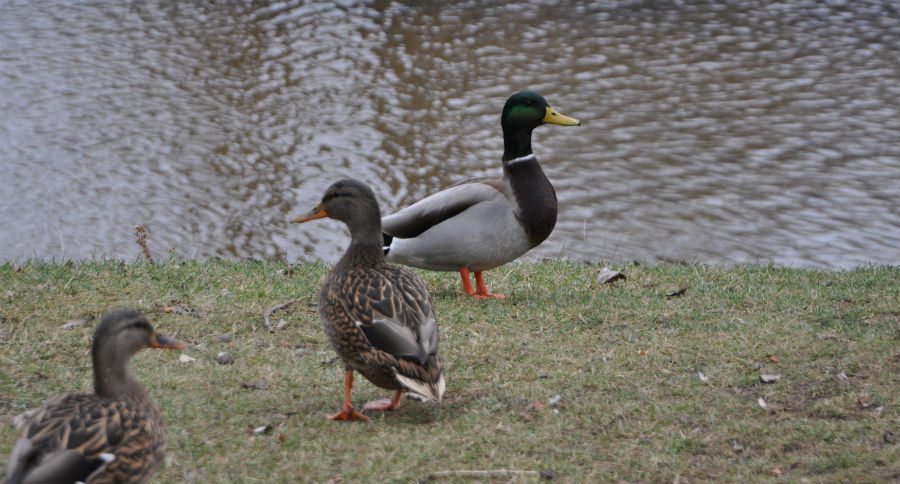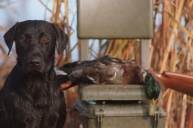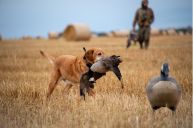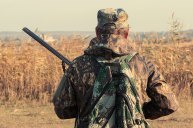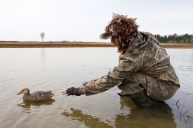1,200 ducks found dead in disease outbreak.
Washington authorities are urging caution from waterfowl hunters in order to help slow the spread of an avian cholera outbreak that has already killed 1,200 ducks.
The Washington Department of Fish and Wildlife confirmed the outbreak near Burbank in a press release. Subsequent testing by the Washington animal disease lab confirms the dead birds had avian influenza.
"Humans are not at a high risk of infection with the bacterial strain causing avian cholera, though infections in humans are possible," WDFW veterinarian Katie Haman said in the press release. "We advise people to avoid handling sick or dead birds, and to report any they find."
For waterfowl hunters in Walla Walla, Benton and Franklin Counties, that means you should keep a close eye on the liver of a harvested bird. If you find white spots, authorities are encouraging you to throw the bird away.
In order to help slow the spread of the disease, hunters in those counties are also being asked to thoroughly clean any hunting gear used in the water with a bleach or soapy water solution.
These solutions will destroy the bacteria that cause the disease. Leaving decoys and waders in sunlight for a few hours will also kill them.
Avian cholera tends to spread quickly, usually through bird-to-bird contact. But it can also spread through contact with water or food containing the bacteria. Once it is in a bird's system, it usually kills it quickly.
"The bacteria are hardy and can survive in water for several weeks and in soil for several months," WDFW waterfowl manager Kyle Spragens said.
Authorities are also recommending those with hunting dogs to prevent contact with dead birds or those that appear sick.
Symptoms of avian cholera include mucous discharge, soiling of feathers, lethargy and convulsions. Infected birds may be erratic when flying or swim around in circles.
WDFW authorities are also asking for the public's help in reporting animals they believe may be infected. Call 1-509-545-2201 or make reports on the WDFW website or through email at [email protected].
NEXT: IOWA AUTHORITIES LOOKING FOR POACHER WHO DISMEMBERED BALD EAGLE
